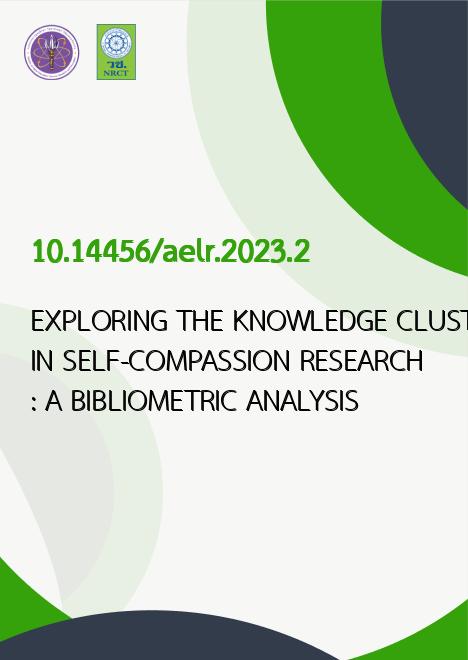
|
EXPLORING THE KNOWLEDGE CLUSTERS IN SELF-COMPASSION RESEARCH: A BIBLIOMETRIC ANALYSIS |
|---|---|
| รหัสดีโอไอ | |
| Creator | Nuttawut EIAMNATE |
| Title | EXPLORING THE KNOWLEDGE CLUSTERS IN SELF-COMPASSION RESEARCH: A BIBLIOMETRIC ANALYSIS |
| Contributor | Gunchanon KHAWDA, Chinun BOONROUNGRUT, Gallayaporn NANTACHAI |
| Publisher | Asian Education and Learning Review |
| Publication Year | 2566 |
| Journal Title | Asian Education and Learning Review |
| Journal Vol. | 1 |
| Journal No. | 1 |
| Page no. | 11-18 |
| Keyword | Self-Compassion, Cluster, Bibliometric, VOSviewer, Scopus |
| URL Website | https://so07.tci-thaijo.org/index.php/AELR |
| Website title | https://so07.tci-thaijo.org/index.php/AELR/article/view/2019 |
| ISSN | 2985-2862 |
| Abstract | The number of research in self-compassion has increased exponentially, thus scientific mapping with large and controversial research stream is required for better visualization of what researchers have already done. This study aims to explore the clusters in research related to self-compassion by using a Bibliometric Network Analysis. This was a literature-based descriptive study. This study included 1,764 publications from SCOPUS database, then analyzed the data using the VOSviewer software to present a bibliometric network analysis including the authors’ keywords co-occurrence mapping, and authors’ keywords co-occurrence temporal mapping. The results showed that most publications were published and cited in Mindfulness (10.71% and 4.49% respectively). Most publications were found in Psychology (68.14%), followed in Medicine (33.67%). The authors’ keywords co-occurrence mapping was visualized, presenting five main clusters including psychological aspects, individual difference, adolescents and their self-concept, emotion and coping behavior, and study methods. Burnout, well-being, mental health, and resilience were found as examples of the latest terms of the authors’ keywords co-occurrence temporal mapping, categorized in the cluster related to psychological aspects. These findings might usefully provide information about the clusters in self-compassion research toward completing of the literature. |
